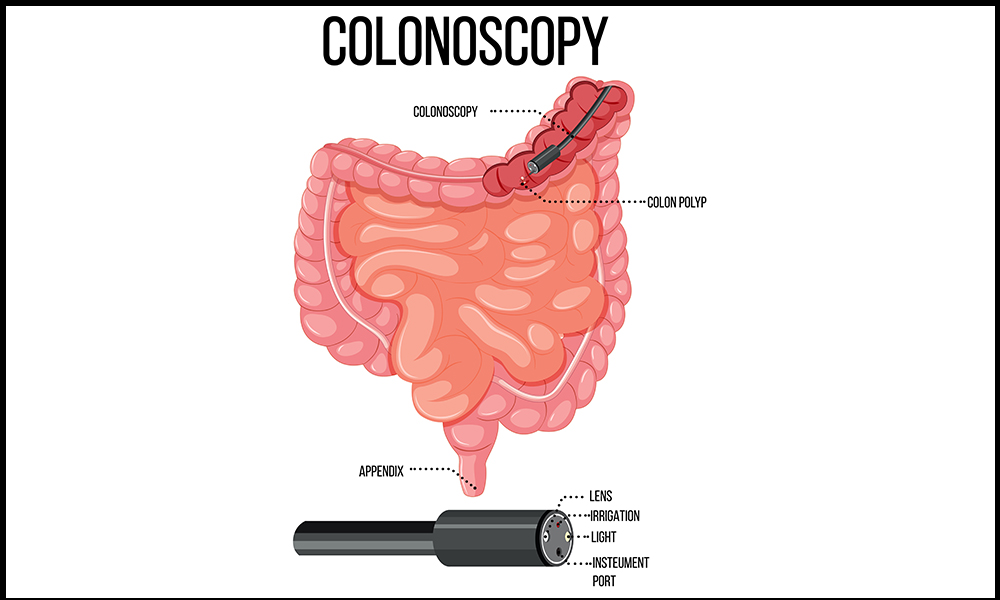-
 Toll Free No 9146-744-744
Toll Free No 9146-744-744 - Appointment
Colonoscopy is a medical procedure that examines the large bowel. It can be used to look for colon polyps or bowel cancer and to help diagnose symptoms such as unexplained diarrhea, abdominal pain, or blood in the stool. Early cancers and polyps can be removed at the same time. The colonoscope is a device that consists of a long, firm, and flexible plastic tube with a tiny digital camera and light at one end. The gastroenterologist carefully guides this instrument in various directions to look inside the colon. The picture from the camera appears on a monitor to provide a clear, magnified view of the colon lining.
The colon (large bowel) is the last portion of the digestive tract. It is a hollow tube about 1.5 meters long that ends at the rectum and anus. The main function of the colon is to store unabsorbed food before it is eliminated in the feces. The colon is the most important organ in terms of the gastrointestinal health of a person. The colon produces short-chain fatty acids that can also be important in preventing colon cancer.



Preparation is a significant part of a colonoscopy. If the bowel is not cleaned before the procedure, then doctors may not be able to identify polyps or precancerous lesions. Before the procedure, the patient is given an oral laxative solution called bowel prep to clean the bowel.
Yes, the procedure can still be performed while you are on periods. Tampons can be worn if preferred by the patient.
The colonoscopy procedure is of 15-60 minutes, but you should plan on spending 2 to 3 hours on preparation time and recovery time.
Colonoscopy is not recommended for pregnant patients, Patients older than 75 years, patients with limited life expectancy, or patients with other severe medical conditions.
Most patients feel returning to their normal routines within 24 hours. However, it is highly recommended to take proper rest and allow enough time to get back to normal, especially if the doctor has removed polyps during the procedure.
The main benefit of getting a colonoscopy is that it helps detect early signs of cancer and allows the doctor to remove polyps that can become cancerous in future.
Avoid the following after a colonoscopy:
Since the colon's lining may be irritated, your doctor may recommend that you drink generous amounts of fluids and eat soft, mild foods for the first day or two. Foods you can eat after the procedure include: Scrambled eggs & Applesauce, etc.
Many insurance companies provide coverage for your surgery after a period of few years, depending on your plan. Our HospiOne Team can guide you perfectly in this scenario.
OUR PROCESS IS EASY contact us for More information.
Copyright © 2023 hospione.com - All Rights Reserved | Developed by Digital Marketing StudioGenix LLP